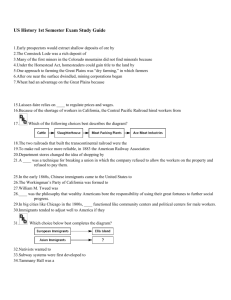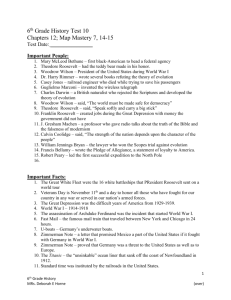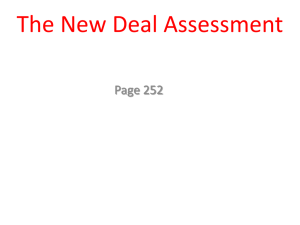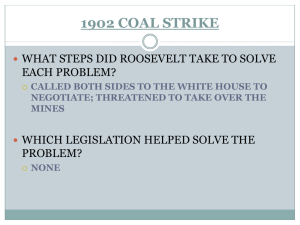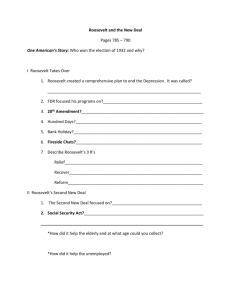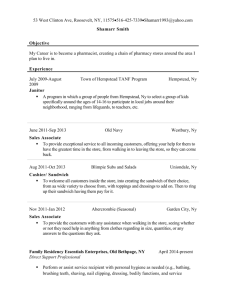Name__________________________ period________
advertisement
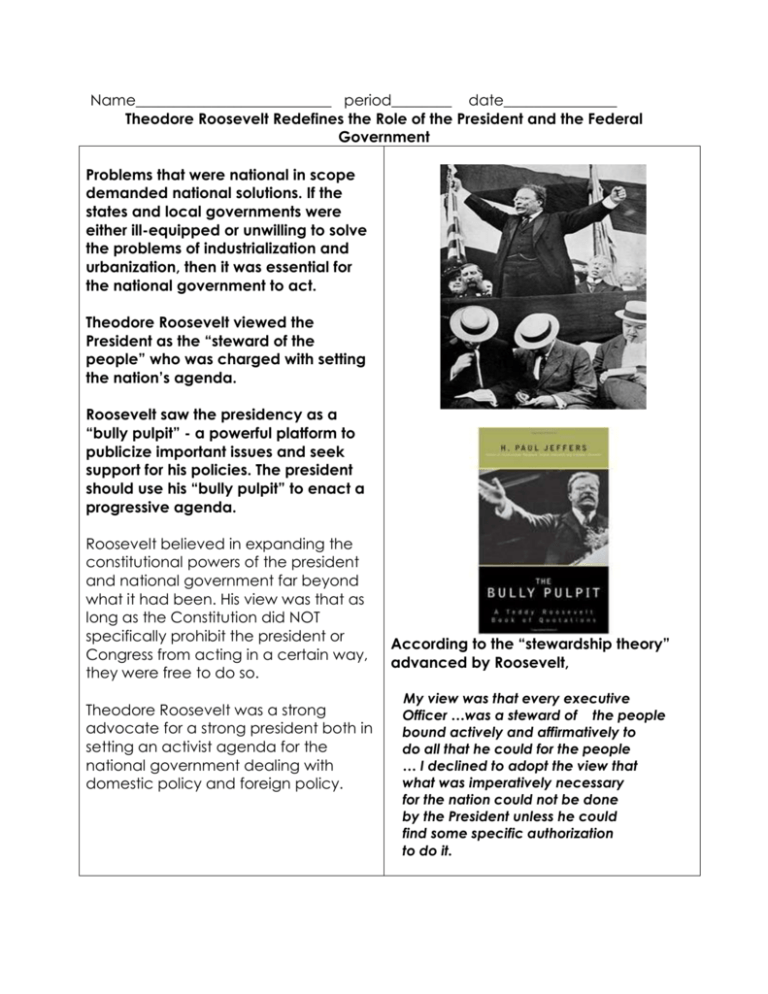
Name__________________________ period________ date_______________ Theodore Roosevelt Redefines the Role of the President and the Federal Government Problems that were national in scope demanded national solutions. If the states and local governments were either ill-equipped or unwilling to solve the problems of industrialization and urbanization, then it was essential for the national government to act. Theodore Roosevelt viewed the President as the “steward of the people” who was charged with setting the nation’s agenda. Roosevelt saw the presidency as a “bully pulpit” - a powerful platform to publicize important issues and seek support for his policies. The president should use his “bully pulpit” to enact a progressive agenda. Roosevelt believed in expanding the constitutional powers of the president and national government far beyond what it had been. His view was that as long as the Constitution did NOT specifically prohibit the president or Congress from acting in a certain way, they were free to do so. Theodore Roosevelt was a strong advocate for a strong president both in setting an activist agenda for the national government dealing with domestic policy and foreign policy. According to the “stewardship theory” advanced by Roosevelt, My view was that every executive Officer …was a steward of the people bound actively and affirmatively to do all that he could for the people … I declined to adopt the view that what was imperatively necessary for the nation could not be done by the President unless he could find some specific authorization to do it. NAME________________________ PERIOD____ DATE____________ 1. Does Roosevelt’s view of the presidency and federal government seem supportive of laissez-faire? Explain why or why not? 2. Does Roosevelt’s view seem more like Hamilton’s view of the government, or Jefferson’s view of the government? Explain. 3. Progressives, like Roosevelt, claimed to be modern heirs to Thomas Jefferson. Explain how they could make this claim if they favored a strong national government and president. 4. Do you agree with Roosevelt, or do you fear that his view might lead to an abuse of power by the president or federal government as a whole? Explain. 5. What was Roosevelt’s view of big business? (Did he think big business needed to be broken up into smaller pieces or destroyed, or did he think that it needed to be regulated by government? Did he believe that some businesses needed to be broken up or destroyed, while others were left alone or regulated? Explain Roosevelt’s view.) Woodrow Wilson, in his 1912 campaign for President called for a “New Freedom” in America. He disagreed with Roosevelt’s approach to big business. Wilson believed that he, not Roosevelt was the true progressive. He said: “I take my stand absolutely, where every progressive ought to stand, on the proposition (idea) that private monopoly (big business with overwhelming share of a market, such as a trust or monopoly) is indefensible and intolerable. And there I will fight my battle.” 6. Does Wilson sound like he believes that there is such a thing as “good trusts” and “bad trusts?” Does he sound like that government can act like a referee? According to the “stewardship theory” advanced by Roosevelt, My view was that every executive Officer …was a steward of the people bound actively and affirmatively to do all that he could for the people … I declined to adopt the view that what was imperatively necessary for the nation could not be done by the President unless he could find some specific authorization to do it. Problems that were national in scope demanded national solutions. If the states and local governments were either ill-equipped or unwilling to solve the problems of industrialization and urbanization, then it was essential for the national government to act. Theodore Roosevelt viewed the President as the “steward of the people” who was charged with setting the nation’s agenda. Roosevelt saw the presidency as a “bully pulpit” - a powerful platform to publicize important issues and seek support for his policies. The president should use his “bully pulpit” to enact a progressive agenda. Roosevelt believed in expanding the constitutional powers of the president and national government far beyond what it had been. His view was that as long as the Constitution did NOT specifically prohibit the president or Congress from acting in a certain way, they were free to do so. Theodore Roosevelt was a strong advocate for a strong president both in setting an activist agenda for the national government dealing with domestic policy and foreign policy.




